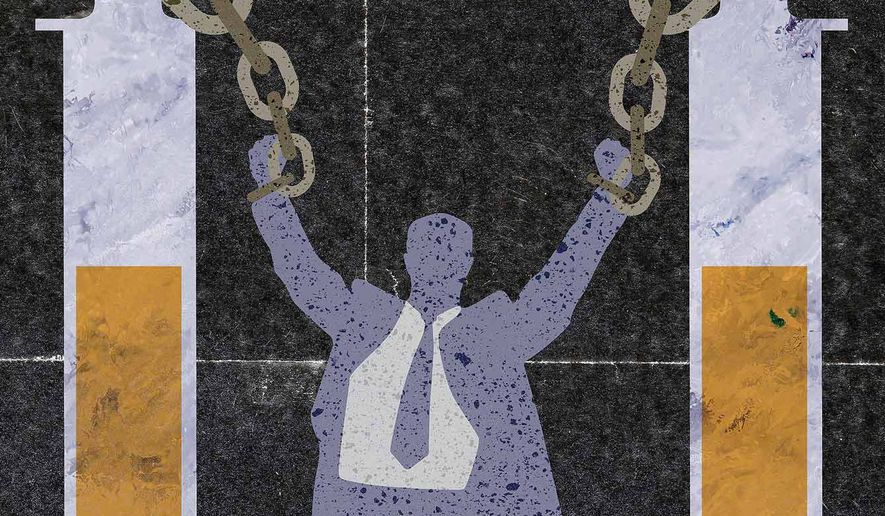OPINION:
Whether to get vaccinated against COVID-19 is a question the majority of Americans have already answered in the affirmative. Efforts to force the shot on the resistant 20% is building an anti-vaccine mandate movement that even many of the vaccinated back. The choices of one individual can often bewilder another, but there are comprehensible reasons underlying clashing views on vaccines. Americans owe one another a good-faith effort to understand the thinking behind both vaccine hesitancy and vaccine militancy. Then they should put the dispute behind them.
Vaccine hesitancy is not, as President Biden alludes, an affliction of dimwits who couldn’t give a fig for fellow citizens they might infect. A 2021 survey by Carnegie Mellon University and the University of Pittsburgh found the group most resistant to the coronavirus vaccines were those with doctorate degrees. Why? Most likely, the well-educated are well-acquainted with past incidents of horrific medical mistakes, such as the devastating birth defects attributed to the sedative Thalidomide, as well as the more recent suspicions linking the DPT vaccine to autism.
It doesn’t take a Ph.D. to realize that the tens of thousands of deaths and hundreds of thousands of adverse reactions worldwide associated with the vaccines are ample cause for caution. Some individuals with intimate knowledge of their own health vulnerabilities have unassailable reasons for opting out of the jabs.
Yet, the president continues to plug his vaccine mandates, and businesses continue to salute obediently. Citigroup, American Airlines and Carhartt are among large employers that have axed the unvaccinated. Most maddening are actions that target the virus but strike the healers instead, like the Mayo Clinic’s ousting of 700 frontline medical professionals.
Still, it is only fair to recognize forces deeper than politics drive the vaccine crusaders to push the mandates good and hard. One is a psychological mechanism called the “behavioral immune system,” described by Toronto psychiatrist and psychoanalyst Dr. Norman Doidge in a lengthy Tablet article titled “Needle Points”: “It’s a circuit that is triggered when we sense we may be near a potential carrier of disease, causing disgust, fear, and avoidance. It is involuntary, and not easy to shut off once it’s been turned on.”
Just as the biological immune system is designed to kill microbes that invade the human body, asserts Dr. Doidge, the behavioral immune system functions to ward off contact with individuals who could harbor infectious diseases. An angry outburst from a mask-wearer toward an unmasked individual, then, may constitute an innate behavioral reaction — or overreaction — to a perceived threat.
There is recognizable rationality in both vaccine hesitancy and vaccine militancy. Nevertheless, a new Monmouth University survey finds 70% of respondents agree that “it’s time we accept that COVID-19 is here to stay and we just need to get on with our lives.”
After two years of pandemic turmoil, Americans are ready to move on. Someone should inform Mr. Biden.




Please read our comment policy before commenting.